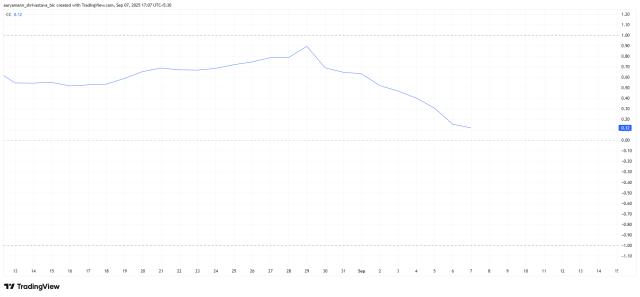Congressman French Hill asserts that the CLARITY Act could pass in the coming weeks with 78 votes in favor from the Democratic Party.
The US digital assets industry is moving closer to a clear regulatory framework as Rep. French Hill, Chairman of the House Financial Services Committee, said this week that the CLARITY Act could be passed in “the coming weeks” with overwhelming bipartisan support. HR 3633 passed the House Committee in July and is now awaiting XEM in the Senate.
In an interview with Fox, Hill emphasized the broad consensus: “The CLARITY Act in the House received 78 votes from Democrats in July. We sent it to the Senate with overwhelming support from both sides.” The bill’s “vote on hold” level reflects the broad consensus in Congress on the importance of a regulatory framework for the digital asset industry.
The CLARITY Act’s core aims to address a problem that has plagued the digital asset industry for more than a decade: regulatory ambiguity. The bill empowers the Commodity Futures Trading Commission (CFTC) as the primary regulator of digital commodity markets, while the Securities and Exchange Commission (SEC) retains oversight of investment contracts and securities. The framework requires exchanges, brokers, and dealers operating in digital commodities to register with the CFTC within 180 days.
Shift from sanctions to transparency
The timing of the CLARITY Act is pivotal in the context of US digital asset policy. Under the Biden administration, the SEC has pursued a regulatory-oriented approach under Chairman Gary Gensler, leading to backlash from digital asset companies and investors. The bill’s passage would mark a clear turning point, establishing a transparent market structure for the industry.
The move is in line with the White House’s July 30 report on digital assets, which advocated for a clearer regulatory framework. Combined with the July stablecoin bill, the CLARITY Act represents a major shift toward comprehensive digital asset policy. By clearly defining the Vai of the CFTC and the SEC, lawmakers hope to end a conflict of jurisdiction that has persisted for years.
If enacted, the bill would not only end jurisdictional disputes between regulators but also lay the groundwork for the United States to compete globally in digital asset innovation. This could create a stable regulatory environment that encourages investment and development of blockchain technology in the world’s largest market.








